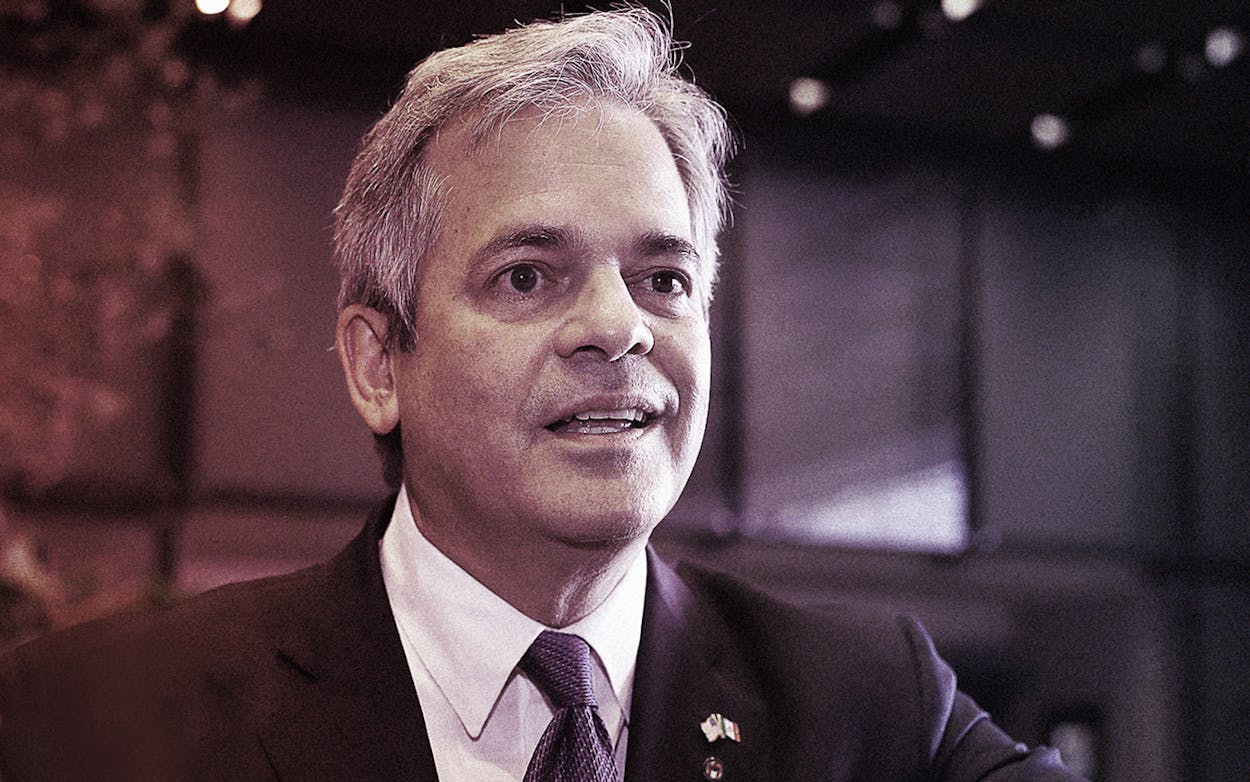Subscribe
By Tuesday, March 3, close to 50,000 people had signed a petition requesting that Austin leaders cancel South by Southwest amid concern that festival attendees would bring COVID-19 to the city. At a press conference with city and county leaders and public health experts that day, Austin mayor Steve Adler said, “At this point, there’s no evidence that canceling SXSW makes us safer.”
But three days later, on Friday, March 6, Adler canceled South by Southwest, acknowledging that while the decision would likely impact a wide swath of the Austin economy, he was prioritizing the counsel of public health experts. In the days since, SXSW CEO Roland Swenson has revealed that his organization doesn’t have insurance that covers the cancellation and was unsure how they will keep the festival going in future years. And late Monday afternoon, the festival laid off a third of its staff, according to multiple reports.
Meanwhile, Adler also is asking Austin to continue to support local bars and restaurants during what would have been the ten days of South by Southwest and beyond. He’s also helped launch Stand With Austin—a fund administered by Austin Community Foundation that’s designed to collect charitable donations to assist individuals and small businesses negatively impacted by the cancellation of SXSW.
Monday afternoon in Texas Monthly’s offices, just before news of the SXSW layoffs broke, we spoke to Adler for the National Podcast of Texas about his decision process, the public health concerns that led to it, and the likelihood that even without SXSW, COVID-19 will wind up in Austin.
Among the highlights:
- Adler says the biggest factor in canceling SXSW was the number of people coming from cities and countries with high rates of COVID-19. It’s why he says he’s comfortable telling Austinites its okay to eat, drink, and gather in Austin. “The decision to close South By was not a decision to close the rodeo, nor was it a decision to close University of Texas basketball games or baseball games. Those are also big events. But none of those events has the same international draw that South By has.”
- Adler believes canceling SXSW won’t stop COVID-19’s arrival in Austin, but it may have bought the city valuable time to prepare. “I think the spread of the disease here is inevitable. I don’t think that closing down South By was intended to stop the disease from getting here because it is coming.” He added that the assessment of public health professionals was that if SXSW was held, the city was risking the virus “coming here more quickly or in a greater way with a greater impact. And the longer we could put that off, the better this city is.”
- He says he’s aware that Austin’s creative sector—already struggling with Austin’s growth and a higher cost of living—will likely be among the hardest hit financially by SXSW’s cancellation. “No question that our artists are among the communities or populations in our city that are most threatened. Which is why we have to do the best job of resiliency and mitigation we can do. We don’t quite know exactly what all the impacts are going to be. We don’t know what next week is really going to look like. We’re watching the hotel revenue so we can anticipate the kind of impact that might have on the cultural arts programs in our city. We’re promising to get those numbers out to the arts community just as quickly as we can so that they can be knowledgeable of—and part of—the conversation. But we’re watching to see what happens to sales tax revenue generally in the city to see how that might impact the budget that we have in the city and whether we have to take steps to mitigate that as we approach another fiscal year or even to adjust for this fiscal year.”






